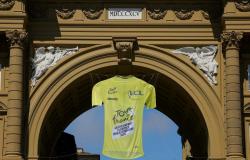Some autonomous communities, such as Madrid, Aragón and Murcia, have begun to publish the marks achieved in the ordinary call of the University Access Test (PAU). A 13.98 is currently the highest grade in the university entrance test (PAU) in Aragon and a 10 is the highest score achieved by students in the Community of Madrid, according to the first data made public by the universities. Spanish.
The vast majority of students who have taken the university entrance test (PAU) in June, known until now as the Baccalaureate Evaluation for University Access (EBAU), will be able to pass it. This is confirmed by the passing percentages of the autonomous communities that are beginning to be known.
These are the data and the publication schedule of the notes by autonomous communities:
Madrid: more than 96.5% pass the test
A 96.52% of students presented to the mandatory block of the EBAU 2024 in the Community of Madrid has managed to pass the tests in the ordinary June call, specifically 33,180 out of 34,376, according to the results that the six public universities in the region have released this Thursday, the day in that the grades for the students have been made public.
The number of ineligible students has remained at 1,196 students, 3.48% of the total. By sex, the percentage of suitable candidates is slightly higher among women than among men, 96.57% compared to 96.46%, just over a tenth, according to data made public by the Vice-Rector for Students and Employability of the University Autonomous University of Madrid (UAM), Javier Oubiña, who acted as spokesperson for the six public centers during the press conference offered this Thursday to offer the data related to the ordinary call of the EvAU for the 23/24 academic year.
Specifically, 19,094 women took the exam, of which 18,439 were eligible, while 15,282 men took the exam, of which 14,741 were eligible.
The highest rating, with a 10has been obtained by a student from the Los Castillos de Alcorcón School, who took the tests at the Rey Juan Carlos University (UJRC), which are followed, with a grade of 9.8, by three other people from the Hélade School in Boadilla del Monte, who were examined at the Complutense (UCM); from Colegio San Agustín in the capital, who took his tests at the Autonomous University (UAM) and from IES Las Musas, also in the capital, examined at the Polytechnic (UPM). The four of them came to the test with an average of 10 in Baccalaureate.
By universities, in the mandatory block, 8,652 students were examined at the UAM; at the University of Alcalá (UAH), 4,735; at the Carlos III University (UC3M), 5,047; in the UCM, 11,494; at the UPM, 1,008, and at the URCJ, 3,435.
This EBAU is the last of the so-called “covid model”, which allowed “greater optionality” to choose questions, so “there is a possibility that the pass rate may experience a certain decrease” next year, they have indicated in Press conference.
Andalusia: a student achieves the highest possible grade, a 14
In Andalusia, the highest score and the maximum possible, a 14, was achieved by María Villanueva Olmedo who, in statements to TVE, told what the moment was like to know the qualification: “This morning at nine, from eight in the sofa and then I’ve already seen it with my mother, both of them super happy, jumping for joy.
“My exams went well, but I didn’t expect a 14 to be honest,” he said. When asked if any subject had seemed more complicated, she said that she had doubts about how some sections of it had turned out. He found the Language and Literature exam a little more complicated and had some doubts in English, despite having a C2 level.
Once the test is over, it’s time to “rest, relax, pool, beach, travel, I’m going to Italy in fact,” he said. And she has said that she is clear that she wants to study an Economics degree. Her mother, Elena Olmedo, has said that “they expected a good grade, but not a 14” and that this has been the “culmination” of the work done “from the age of 3 to 18.”
The director of the Santa Ana School where the young woman studied, María Isabel Gómez González, explained that it is the first time that a student from the center achieves the highest grade and that María Villanueva, “always very studious and hard-working, motivated” began to study at this educational center at the age of three. In her 4th year of ESO she won the award for academic and personal career from the Seville City Council and has won the Mathematics Olympiad. This year she passed the first round of the Economics Olympics and she goes with her teacher to the next phase, with the possibility of reaching Hong Kong. A 14 “was possible and foreseeable in María,” she added.
In Murcia, the average grade is 7.29 points
A 96.2% of the students who took the university entrance exams in the Region of Murcia They have passed the exams, with an average grade of 7.29 points. The percentage of passes, provided this Wednesday by the University of Murcia (UMU), which coordinates the tests, is slightly higher than that of the June 2023 call, when 94.7% of the Murcian examinees passed the EBAU.
In the General Phase, which guarantees access to the University with the tests of the common subjects and the core modality, three students have achieved the maximum score, a 10. They are Irene Carrillo Sánchez, from CES Samaniego; Jorge Muñoz Ibáñez, from Maristas La Merced-La Fuensanta; and María Pérez Sánchez, from IES Graduate Cascales.
In this June call, 7,547 students applied for the General Phase in Murcia, who were later joined in the voluntary phase by another 1,194 people.
Once the grades are known, the period to submit claims opens, which will remain open until June 15 at 6:00 p.m.
All information about the claims process can be consulted on the website “acceso.um.es”.
Navarra: 98.41% of students pass the test
In Navarra there has been a higher percentage of students who have passed the tests, 98.41% of the students presented – the previous year 97.93% of those enrolled passed the test.
Of the 3,468 students enrolled in the mandatory phase, only 55 have failed the tests and another 7 did not appear, compared to the 16 who did not do so last year (the percentage of people passed is calculated on those presented), as explained the Public University of Navarra (UPNA) in a note.
By linguistic profiles, of the 2,541 students enrolled in the compulsory phase who completed their studies in models G and A (Spanish), 2,538 people applied and 2,495 passed, which represents 98.31% (compared to 97.72 % from last year). For their part, of the 927 students taught in Basque (model D) enrolled in the compulsory phase, 4 did not appear and 911 have passed, which represents 98.70% of the total (compared to 98.51% last year). past).
In this call, a total of 4,031 students registered to take the exams (compared to 3,816 last year). Of them, 563 appeared only in the voluntary phase.
Aragon: 97.93% of Baccalaureate students pass the EBAU
97.93% of the Baccalaureate students who have taken the University Access Assessment in Aragon have passed it in the mandatory phase, 6,106 of the 6,254 finally enrolled. By province, in Huesca the percentage of approvals has been 96.87%; in Teruel, 98.00% and; in Zaragoza, 98.16%.
Lucía Bas Esteban from Zaragoza, a high school student at the Nuestra Señora del Pilar-Salesianos school, has obtained the best grade in Aragon from the EBAU, a 13,980. “Since I was little I have wanted to study pure sciences. At first I wanted Chemistry for years, but the genetics section of Biotechnology finally made me opt for it,” Lucía Bas Esteban revealed, according to Europa Press.
He is followed in second position, both from Aragón and Zaragoza and with the same score, 13,960, by Alfonso Pérez Rubio, from the Santa María del Pilar-Marianistas school, and Oriol Guasch Peñaranda, from the IES Miguel Servet.
Carmen Altemir Miranda, from IES Pirámide, has achieved the best score in Huesca, a 13.914, and Inés Rubio Villén, from IES Salvador Victoria, has achieved the best result in the province of Teruel with a 13.637, as reported this Thursday the University of Zaragoza.
Aragón students can now check their results by accessing the ballot with the grades obtained, at the web address indicated at the end of this press release. This ballot will be provisional during the period established to request a second correction or, where appropriate, until the publication of the results of the second correction.
The dates to formalize requests for a second correction will be from June 13 to 17 and the grades will be made public on June 25. These requests will be made online, from the same web address. The exercises for which the second correction has been requested will be reviewed by specialist teachers other than those who have made the first correction.
Those who do not request a second correction will be able to access the final ballot starting June 18, at the same web address; the rest will obtain the final ballot after the publication of the results of the second correction. Admission to the degree courses offered by the University of Zaragoza can be requested from June 13 to July 1. On July 10, the lists of those admitted to each degree will be published – these lists are the ones that will determine the cut-off marks.
Publication schedule for 2024 selectivity notes
There are still several autonomous communities that have not published the scores in the university entrance test (PAU). This is the calendar:
- Aragón, Murcia: June 12.
- Madrid, Andalusia, Basque Country and Galicia: June 13.
- Canary Islands, Castilla y León, Valencian Community, Extremadura and La Rioja: June 14.
- Asturias and Castilla-La Mancha: June 17.
- Cantabria: June 18.
- Balearic Islands: June 19.
- Catalonia: June 19.
- Navarre: June 20.






